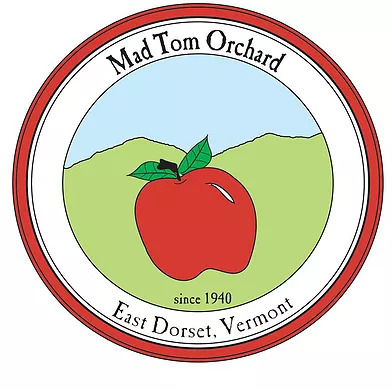Our growing practices focus on making the orchard sustainable. To do so, we follow Integrated Pest Management (IPM) guidelines developed by Cornell University. Our weather station is connected to computer models at Cornell which give us individualized action thresholds for diseases such as apple scab and fire blight and information on when different insects hatch.
When I was working with my father on Vermont orchards in the 1950’s, we used broad spectrum spray materials that killed both damaging and beneficial insects. Today we use pheromone insect traps together with the Cornell computer models to determine when insects populations build and we then spray with reduced risk materials targeted specifically to the insects the are present.
We use no herbicides in the orchard relying on mowing with a new hydraulically controlled German made mower that senses the tree trunks, a good five foot Toro zero turn mower and good Echo string cutters. Keeping the grass in check limits competition for water and nutrients and makes a better crop and stronger trees – it also reduces cover for mice and voles who can damage the trunks.
We supply recyclable plastic bags for customers to use. We have purchased good platform scales that make it easy for customers to bring their own reusable bags as well.
Our entire orchard is encircled by an 8 foot woven wire fence to exclude deer and bear. This limits damage to the trees and eliminates potential contamination. We do allow customers to bring well behaved dogs provided they kept on a leash and we supply doggy clean up bags.
We minimize our carbon footprint with an irrigation system that is completely gravity powered. Water comes from a pipe in Otter Creek 1500 feet up the hill and has 50 pounds of pressure at our barn – hence no pump and no electricity or fuel to run a pump.
We do all we can to grow our crop in the most environmentally friendly way possible and are continually looking for more ways to insure that orchard can continue to future generations.
